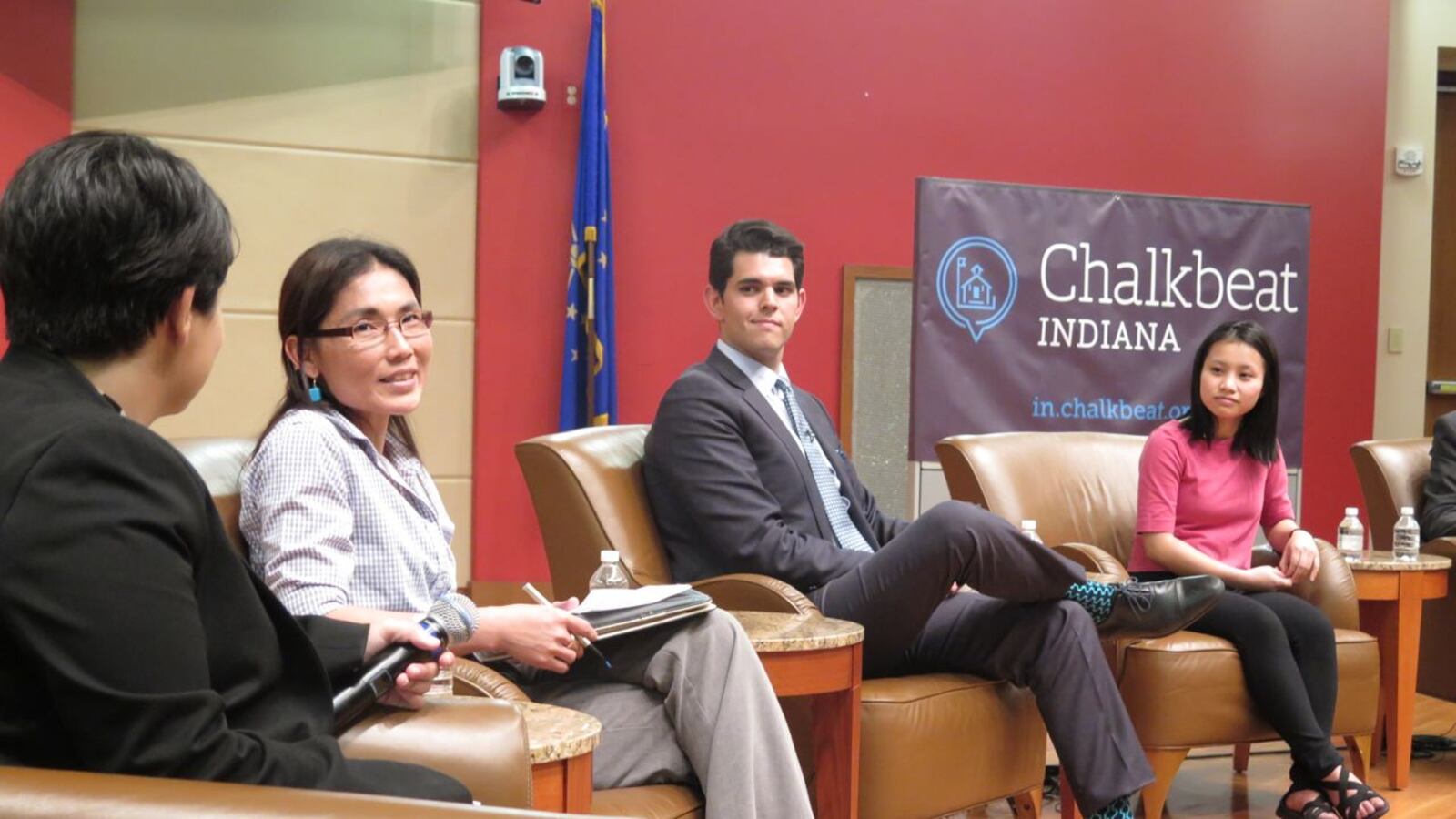When an Indianapolis school meets new students from Burma, there is a lot the teachers, staff and their new classmates can’t imagine about the students’ life experiences.
May Oo Mutraw, the founder of the Burmese Community Center for Education, said schools often don’t understand what it means for families that come from a country like Burma, which has been embroiled in civil war for decades.
“These people lived literally in the war zones,” she said. “Their villages were burned down. They hid in the forest. If they heard boots of the soldiers, they fled again.”
For some, Indianapolis is the first place they’ve ever learned in an organized way.
“We are talking about a generation of people who did not get to go to school,” Mutraw said.
Mutraw joined Indianapolis Public Schools teacher Eddie Rangel, Southport High School student Elly Mawi and Charlie Geier, who heads the Indiana Department of Education’s English language learning efforts, for a panel discussion tonight to discuss the challenges of teaching children who are still learning to speak English.
The panel, moderated by Chalkbeat Indiana’s Hayleigh Colombo and held at the Central Library, was a follow-up to a series of stories jointly published last month by Chalkbeat, the Indianapolis Star and WFYI Public Media.
The series, called Lost In Translation, explored the challenges Indiana schools face to serve a fast-growing population of immigrant students. The stories reported funding had fallen behind as the number of English language learners has nearly tripled in Marion County.
Elly Mawi, a senior at Southport High School, came to the United States from a refugee camp after her family fled Burma. She praised Southport for being welcoming to immigrant students, but said she and her Burmese classmates do sometimes hear complaints in the community about the cost of serving them.
“We get a lot of misunderstanding,” she said. “They think we come here because of greed. We come here in the first place because we are at the line of life and death. You either die or escape.”
Last week, proponents of English language learning programs got some good news: the legislature more than doubled a grant program that supports instruction for children learning to speak English. Key lawmakers said the series helped raise awareness of the need for more funding.
Geier said the funding boost was an important step forward. Another recent upgrade was Indiana’s move to higher quality diagnostic tests schools now use to evaluate English language learners called World Class Instructional Design and Assessment.
The next step, he said, was to improve and expand training and license requirements for teachers of English language learners.
Just 900 Indiana teachers have a credential for expertise in teaching children learning to speak English on their teaching licenses, he said. Programs to prepare those teachers range wildly in what they require. Some require much less classwork and student teaching than others.
“We need to think about quality,” he said. “We have to have the right person doing the right work.”
Teachers who are dedicated to helping English language learners make a huge difference, said Mawi. Her teachers went above and beyond to help her. They met with her after school. They helped her fill out her college applications.
Mawi, who will graduate third in her class at Southport and will attend Butler University next year on a full scholarship, had a message for teachers of English language learners from all immigrant children like her:
“We thank you,” she said. “We love you. You make a difference every day in our lives.”

